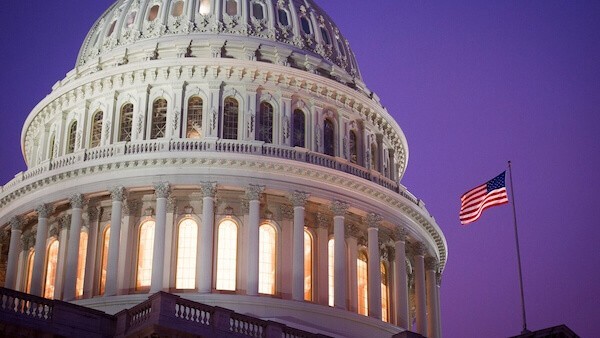Veterans Economic Recovery Act Bill Introduced

New Legislation for Veterans Economic Recovery Introduced
In an effort to get veterans and their spouses back to work so they can provide for themselves and their families, top Veterans Affairs lawmakers on Capitol Hill (Phil Roe, R-Tenn., Senate Veterans Affairs Chairman Jerry Moran, R-Kansas, Senate ranking member Jon Tester, D-Mont., and Rep. Mike Levin, D-Calif.), introduced a bipartisan, bicameral bill on June 4, 2020 ––the Veterans Economic Recovery Act.
Veteran Unemployment Rises
As America grapples with the COVID-19 pandemic, rising unemployment is an urgent concern. Veteran unemployment rose to nearly 12 percent in recent weeks. Female veterans have been hit particularly hard with unemployment at about 20 percent in April 2020.
According to the Bureau of Labor Statistics, (BLS), some early estimates show as many as 1.2 million veterans in major industries could be affected by layoffs, furloughs, pay cuts, and permanent closures of businesses. In addition, the social isolation, anxiety, and demoralizing “left behind” feelings that accompany unemployment stand to hit veterans especially hard.
Aim Is to Rapidly Retrain Veterans
This bill was designed to provide the shortest route possible to long-term solutions in the form of meaningful, sustainable work. Its overarching objective is to rapidly retrain veterans to ensure they have the knowledge and skill-sets to make a smooth, successful transition from military to civilian life, quickly reenter the workforce, and continue to thrive in the post-pandemic economy.
What Happens if the Legislation Is Passed?
If the legislation is passed, it will provide up to 12 months of educational benefits to help veterans between the ages of 25 – 60 get training in high-demand fields through the Rapid Retraining Program.
The program is intended to mirror current Post-9/11 GI Bill education benefits in its tuition funding and housing stipend. If the bill passes, it will be open to 35,000 unemployed veterans who lost their jobs due to the pandemic and are not eligible for any other VA educational programs. It will also expand the VET TEC program (Veteran Employment Through Technology Education Courses for Training Providers) to assist transitioning service members.
Who Is Eligible for the Veterans Economic Recovery Act?
Veterans would need to meet the following criteria to be eligible.
- Be between 25 and 60 years old.
- Be unemployed on the day they apply for the program.
- Have an honorable or other-than-honorable discharge.
- Not be eligible for any other VA education benefit.
- Not be enrolled in another federal or state job training program.
- Not be receiving disability compensation for reasons that led to unemployability.
- Not be receiving any unemployment benefit when they start training under the program.
According to lawmakers, members of the National Guard or Reserve activated under federal orders for coronavirus response would also be eligible for the program if they meet the other age, unemployment and discharge requirements.
Benefits of the Veterans Economic Recovery Act
Here are some important things to know about this proposed program:
1.) The benefits are non-transferable.
2.) The payments will be made as follows:
-
- 50% of the total amount at the start of the program of education.
- 25% upon completion of the program of education.
- 25% upon securing employment in a field related to the program of education.
3.) Any recipient who fails to complete the program of education they choose won’t be eligible to receive additional Veterans Economic Recovery Act funds for for another educational program.
If you’re in favor of The Veterans Economic Recovery Act, you can show your support by asking your Senators and Representative to cosponsor this legislation. This program already has the support of veteran service organizations including the: VFW, American Legion, Disabled American Veterans, Paralyzed Veterans of America, AMVETS, WWP, Student Veterans, Blinded Veterans Association, Veterans Education Success, National Guard Association of the United States, and more.
For more on the program, here’s a pdf.
RELATED:
About the author
Julie Provost is a freelance writer, and blogger. She lives in Tennessee with her National Guard husband and three boys.


